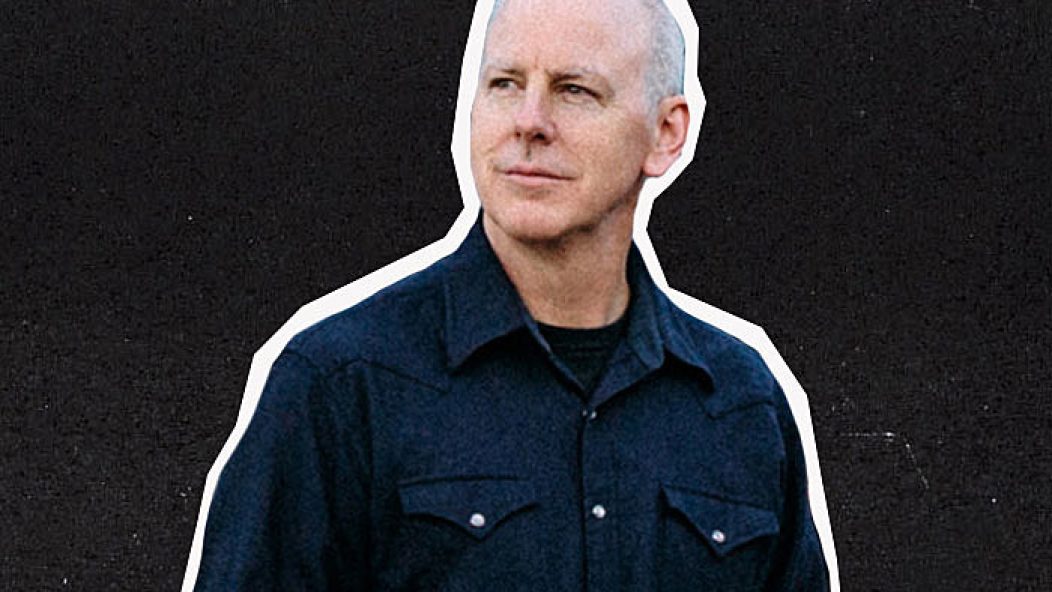
Bad Religion's personal punk-rock rulebook only has one sentence
In 2020, no band would be spared the wrath of the COVID-19 pandemic. Punk icons Bad Religion weren’t going to mope about it. If anything, they took the opportunity to move forward sonically and culturally. The band refunded their fans’ ticket money for their planned tour with Alkaline Trio, but that hardly meant they were wrapping up the year.
This month, author Jim Ruland’s Do What You Want, the official Bad Religion biography, was released, giving insight to one of SoCal punk’s longest-running and vital units. In addition, guitarist Brett Gurewitz produced an alternate version of “Faith Alone” (from 1990’s Against The Grain) with a string arrangement that heightens the song’s poignancy. There’s more music in the pipeline, as well.
Read more: Bad Religion and Alkaline Trio are cancelling their tour so fans can get refunds
Alternative Press got an audience with founding BR member Dr. Greg Graffin to discuss Bad Religion’s role in a pandemic world. Here’s a man who, 30 years ago, wrote a song about the great debate of science versus faith, which resonates harder than it did on its original release. He also reflects on the book and how he’s feeling about humanity and the upcoming election. The good news is that he’s optimistic. That’s probably because he’s saving the unbridled rage for the next song he writes.
You wrote “Faith Alone” many decades ago. Today it’s remarkably prescient.
That’s the sign of a good song, in my opinion. If you can write it for some universal human experience that isn’t just what’s happening today but might actually become more relevant in the future. I appreciate the observation that it was written many years ago.
One of the great things about Bad Religion is that it’s always given us a place to write about topical things that are timeless. And, of course, faith. The tension between faith and science and reason and unreason are almost universal. They’re human experiences that go on and on. What we resolve today will hopefully get us a little closer to that apex of enlightenment. But there’ll be more hurdles to cross, I’m sure.
The new version with the string arrangements is really powerful. Not grandiose or saccharine. The message is still on point: It’s beautiful, and it’s sad, but it’s a call to action. Did this version come off the way you had intended it to?
As a songwriter, you try and stimulate multiple areas of the brain in the listener who’s going to be hearing it. I’ve always focused a lot on meaning and the expression, the human qualities of the songs I write. How do you express this? How do you create the impression in the listener that this is a serious topic?
I think that’s one of the things in good singers that I’ve always admired. That’s always something they’ve been able to do. It makes you realize this is a serious song. It can be a love song about a personal emotion. But good singers make you believe that it’s something worth listening to. And the sentiment in the song. So if there’s too much orchestration, it gets lost.
“Faith Alone” is just a piano and a sentiment. So Brett [Gurewitz, producer/guitarist] took my stripped-down version and did the orchestration with one of his favorite string players. He thought it would accentuate it. I remained open-minded because I didn’t know what it was going to do when it came back. [The arrangement] really helps accentuate the sentiment in the song. But it doesn’t get in the way.
It definitely conveys the gravitas and the weight of it. All I could think of was Dr. Anthony Fauci. It feels like a tribute.
It’s been 30 years since that song was written. But it still has the same power that it had back then. So to me, that’s a really good indication that there’s something worth hanging onto and that sentiment. Dr. Fauci is a fellow Cornellian, by the way.
The title of the new Bad Religion bio, Do What You Want, is taken from the title of a song on Suffer. I’m wondering if that is a band motto or the only page that should be rendered in the mythical “punk-rock rulebook.”
That’s a very good question. The title is obviously taken from not only one of the band’s favorite songs to play, but it’s one of the fan favorites, too. I think that played heavily with the author, Jim Ruland. But it also characterizes the book. Because this story is one that shows a lot of persistence.
Bad Religion have a lot of persistence. But we never set out to restrict anyone’s activities, beliefs or willingness to participate in the band. We’ve never had a rulebook. We all really just did what we wanted. Brett was motivated to run Epitaph Records from a very young age. I was motivated to get an academic education. We weren’t going to hold each other accountable for “How is that going to help the band?” Jay [Bentley] and Greg Hetson [former guitarist] and everyone had their own endeavors. Brian [Baker, guitarist] is still in many side projects today. If you look at it from that perspective, it looks like we’re a bunch of guys doing what we want. But there’s something that comes together when we decide to make Bad Religion music, and it’s informed by all those outside activities. And I think that’s part of the strength of the band.
Are you familiar with the NOFX book, The Hepatitis Bathtub?
Yes. It’s quite popular.
The story goes that none of the band members would discuss what was being written. If there was anything sordid, the band found out about it when the rest of the world did. Did Bad Religion have any kind of moments that maybe you weren’t ready to share with the world at large?
There were no rules or ground rules. Jim did a great job of interviewing people far and wide. We didn’t know what information he was getting, and we didn’t act as editors. But that’s not to say we didn’t learn some things. [Laughs.] I guess a lot of it we forgot, and then one of the other guys tells a story and [we go], “Oh, yeah, that’s right.”
Jay has this great memory for details in the band. And Brett and I just laughed so hard when we learned the reason why Jay Ziskrout, our first drummer, left the band. And [Bentley] remembered it to the detail. Then it was corroborated by the original drummer! He left the band because we looked at photographs and chose a picture for the album, and we didn’t include him in that meeting. So apparently that’s why he quit the band. So, yeah, you learn little things like that. But you know, there is nothing that shocking.
The November election. Do you think humanity is going to suit up or dress down?
I assume you mean are [people] going to show up at the polls? Yeah, if they make it easy for them. But I don’t know whether Wisconsin was a good test case, right? If you recall, they closed more than half of the polling places. And during the pandemic, when it started really taking off in Wisconsin, they said they weren’t going to make it easier, and people still showed up and risked getting sick so they could vote against the Republican legislature. If that’s an indication of people’s discontent, then, I think we can have some hope that the Democrats will show up en masse. But who knows? I honestly just expect a lot of meddling and a lot of obstruction. I live in a place in upstate New York where it’s never very crowded, and it’s very convenient. I’ve always had great experience voting in New York. California, I’ve had various experiences, but it’s a lot more crowded. I have friends who have to devote half of their day to voting. It shouldn’t be like that.
May I describe you as cautiously optimistic?
Yeah. It’s beyond me how anyone could, just as a protest vote, not vote for Joe Biden. You know, even if you’re not very behind the guy, the antipathy toward the current administration has never been stronger. You can’t always have the best candidate as a president. So we may have to settle for one this time. But you can certainly do something to eliminate the unfit, speaking evolutionarily here. And what more evidence do you need to eliminate the unfit from the office that’s currently occupied? So it’s beyond me how this could even be close.
You can order Jim Ruland’s book Do What You Want here. Check out the new version of “Faith Alone 2020” below.








